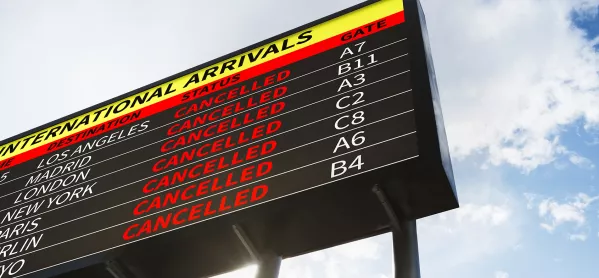There will be no replacement for the Progress 8 measure for two key stage 4 cohorts impacted by the Covid-19 pandemic, the Department for Education has confirmed.
After exploring alternative options, the DfE said there will be no progress measure published for schools in 2024-25 and 2025-26. (You can read an ASCL analysis of what this will mean for schools, here)
Primary tests were cancelled for pupils in Year 6 in the academic years 2019-20 and 2020-21 because of the pandemic - meaning there is no prior KS2 attainment data available to use as a baseline for Progress 8 calculations for students sitting their GCSEs in the next two years.
Headline attainment measures will still be published for these cohorts, alongside the most recently available Progress 8 scores, which will be 2022-23 and 2023-24, the DfE has said.
Grading will take place as normal in the summer 2024 and summer 2025 exams. The DfE said it intends to return to producing Progress 8 scores in 2026-27.
‘Far from ideal’
Headteachers’ unions had urged ministers not to produce secondary school progress scores, rather than use an alternative way of calculating them, earlier this year.
Reacting to today’s announcement, the Association of School and College Leaders qualifications specialist, Tom Middlehurst, said while this approach may be the “least bad”, “it is far from ideal”.
He said: ”[It] means we are stuck with schools being judged in performance tables on exam attainment regardless of context.
“Schools where progress is improving will feel particularly hard done by.”
Mr Middlehurst added: ”It is a missed opportunity to rethink performance tables, and once again highlights why current accountability metrics should be reformed to cover a wider range of information that tells parents more about a school than just exam results.”
Progress 8 has been one of the DfE’s main performance measures since 2015-16. It aims to capture the progress made by pupils from the end of primary school to the end of KS4.
It includes eight qualifications. A Progress 8 score of 0 means that, on average and compared to pupils with similar starting points, pupils at that school made average levels of progress.
The average Progress 8 score for non-disadvantaged pupils in 2023 was 0.17, compared to -0.57 for disadvantaged pupils.
GCSE grading
When the DfE published attainment data for the 2022-23 exam cohort, it included context that while grading had returned to how it was pre-pandemic, with some protections, there were ongoing uneven impacts of the pandemic on pupils and schools.
GCSE results in 2023 resulted in an expected fall in the overall proportion of top grades awarded. It marked the end of Ofqual’s two-year plan to return grading to normal post-pandemic.
The 2024 GCSE exams will also be back to “normal”, former chief regulator Jo Saxton confirmed last year.
However, students sitting maths, physics and combined science exams will still be provided with formula and equation sheets to take into account the disruption caused to them by Covid.
Current chief regulator Ian Bauckham has written to schools today to advise them to prepare students for assessment “in light of the standard of work required in 2023”.
“We anticipate outcomes in summer 2024 will be similar to those in summer 2023 with variations in outcomes likely similar to those typically seen in previous years,” he added.
For the latest education news and analysis delivered directly to your inbox every weekday morning, sign up to the Tes Daily newsletter





